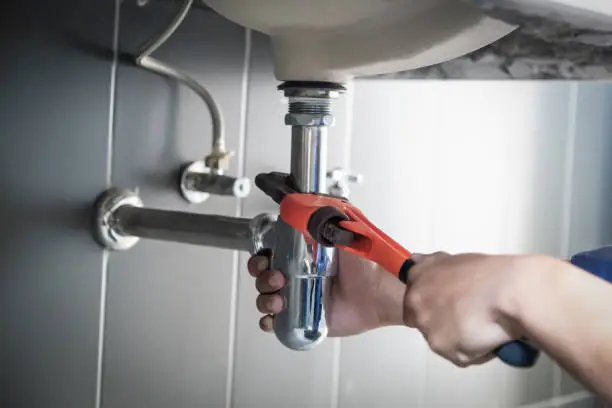
When it comes to keeping your plumbing system in tip-top shape, small but critical components like grease can make a world of difference. Whether you’re dealing with a stubborn faucet, a water heater issue, or general plumbing repairs, choosing the right lubricant can save time, money, and frustration. Two popular options are plumber’s grease and silicone grease—but which one is right for your needs?
This post dives deep into the world of lubricants, comparing plumber’s grease vs silicone grease, while also touching on related plumbing topics like emergency plumbing services, boiler repair, and drain cleaning. Let’s explore these options and find out which is the best fit for your plumbing needs!
What is Plumber’s Grease?
Plumber’s grease, often referred to as faucet grease, is a waterproof lubricant primarily used in plumbing applications. It is made from silicone oil and a thickener such as silicone grease or lithium. This grease is specifically designed for plumbing components like O-rings, gaskets, and valves.
How Plumber’s Grease Works
Plumber’s grease acts as a sealant and lubricant, preventing leaks while ensuring smooth operation of components. Its water-resistant properties make it ideal for faucets, especially in areas exposed to hot water. It also helps prevent metal parts from corroding over time.
Benefits of Using Plumber’s Grease
- Water Resistance: Perfect for use in damp or wet environments.
- Heat Tolerance: Performs well under high temperatures, making it ideal for hot water systems.
- Longevity: Extends the lifespan of plumbing components by reducing wear and tear.
- Ease of Use: Can be easily applied to fixtures without requiring special tools.
What is Silicone Grease?

Silicone grease, also known as dielectric grease, is a high-performance lubricant made from silicone oil and silica thickener. While it shares similarities with plumber’s grease, silicone grease is more versatile and used across various trades like electrical and carpentry work.
How Silicone Grease Works
Silicone grease creates a barrier that resists water, heat, and electricity. Its high dielectric strength makes it popular among electricians for protecting electrical connections, but it also finds extensive use in plumbing and heating services.
Benefits of Using Silicone Grease
- Versatility: Suitable for plumbing, electrical, and mechanical applications.
- High Temperature Resistance: Handles extreme heat better than plumber’s grease.
- Non-Corrosive: Protects both metal and plastic components.
- Waterproofing: Prevents leaks and keeps parts lubricated even in submerged conditions.
Plumber’s Grease vs Silicone Grease: Key Differences
| Feature | Plumber’s Grease | Silicone Grease |
|---|---|---|
| Primary Use | Plumbing (faucets, O-rings) | Plumbing, electrical, mechanical |
| Water Resistance | High | Very High |
| Temperature Tolerance | Moderate | Excellent |
| Versatility | Limited to plumbing | More versatile |
| Cost | Affordable | Slightly more expensive |
Which One to Choose?
If you’re focused solely on plumbing repairs like fixing faucets or preventing leaks, plumber’s grease is a reliable and affordable option. However, for tasks requiring higher temperature tolerance or multi-functional use, silicone grease is your best bet.
Applications of Plumbing Greases in Real-Life Scenarios

Emergency Plumbing Service Near Me
When you’re searching for a reliable plumber near you, having a well-equipped professional who uses the right grease is critical. From burst pipes to drain cleaning, lubricants like silicone grease can prevent long-term damage to components.
Plumber vs Electrician: Who Uses What?
Both trades rely on greases, but in different ways. While plumbers use plumber’s grease to seal and lubricate water-related components, electricians use silicone grease to protect electrical connections.
Gas Engineer vs Plumber
Gas engineers primarily deal with gas systems and boilers, often using high-temperature silicone grease. Plumbers, on the other hand, rely on plumber’s grease for faucets and O-rings. Knowing the difference can help you choose the right emergency plumbing service or boiler repair expert.
How Much Do Emergency Plumbers Cost?
On average, emergency plumbers charge per hour rates that vary based on the complexity of the job. Adding tools like plumber’s grease to their arsenal ensures smoother repairs, which could save time and reduce costs for homeowners.
Why Both Greases Matter for Plumbing Services
Boiler Service and Repair
Both plumber’s grease and silicone grease play roles in boiler repairs, ensuring that seals and valves operate efficiently without leaks.
Hot Water Systems
When repairing hot water systems, silicone grease’s superior heat tolerance makes it an excellent choice for protecting O-rings and seals exposed to high temperatures.
Drain Cleaning and Plumbing Repairs
Even during routine tasks like drain cleaning, lubricating key components with plumber’s grease can enhance durability and efficiency.
Burst Pipes and Emergency Situations
In emergencies like burst pipes, using a lubricant to secure joints quickly can prevent further water damage until professional help arrives.
Finding Reliable Plumbing Services Near Me
Whether you’re looking for the best plumbers in Norfolk or need an emergency plumber in Norwich, it’s important to choose professionals who understand the nuances of plumbing greases. Reliable plumbers know how to use the right tools and materials for tasks ranging from faucet repairs to boiler servicing.
What to Look For in a Plumber
- Experience in using advanced tools and lubricants.
- Knowledge of both plumber’s grease and silicone grease.
- Reasonable call-out costs for emergency plumbing services.
The Cost of Plumbing Repairs: How Much Should You Expect?
The cost of plumbing repairs often depends on the complexity of the task and the materials used. For instance:
- Call-Out Fees: Emergency plumbers charge a premium for immediate service.
- Per Hour Rates: Average rates vary, but using the right grease can speed up repairs and reduce labor costs.
- Parts and Materials: Silicone grease may be slightly more expensive, but its durability often justifies the cost.
Conclusion: Choosing the Right Grease for Your Needs
Whether you’re a homeowner or a professional in trades like carpentry or electrical work, knowing the difference between plumber’s grease and silicone grease is essential. Each grease serves a unique purpose, from sealing faucets to protecting electrical components, and understanding their applications can save time, money, and effort.
If you’re in need of professional help, don’t hesitate to reach out to reliable plumbers near you or an emergency plumbing service for expert advice. A little grease can go a long way in ensuring your plumbing system runs smoothly for years to come.

